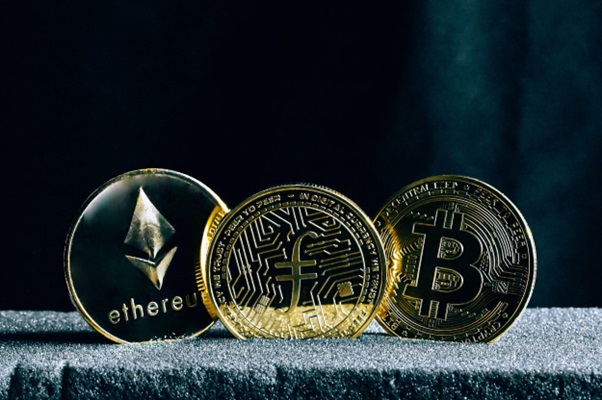
Shopify, the leading e-commerce platform, has announced that it will enable its merchants to accept payments in USDC, a stablecoin pegged to the US dollar, through a partnership with Solana, a high-performance blockchain network. This integration will allow Shopify users to benefit from fast, low-cost and secure transactions, as well as access to the growing ecosystem of decentralized applications built on Solana. USDC is one of the most widely used and trusted stablecoins in the crypto space, with over $30 billion in circulation.
By accepting USDC, Shopify merchants can tap into a global customer base that prefers to pay with digital assets, while avoiding the volatility and complexity of other cryptocurrencies. Solana is a scalable and interoperable blockchain that can process thousands of transactions per second with minimal fees. It also supports smart contracts and various protocols for DeFi, NFTs, gaming and more. By integrating with Solana, Shopify aims to provide its users with a seamless and innovative e-commerce experience that leverages the power of blockchain technology.
The Central African Republic (CAR) is exploring the possibility of tokenizing its natural resources, such as diamonds, gold, and timber, on a blockchain platform. The initiative aims to create a transparent and traceable system for managing the country’s valuable assets, as well as to attract foreign investment and generate revenue for the government and the local communities.
Register for Tekedia Mini-MBA edition 19 (Feb 9 – May 2, 2026): big discounts for early bird.
Tekedia AI in Business Masterclass opens registrations.
Join Tekedia Capital Syndicate and co-invest in great global startups.
Register for Tekedia AI Lab: From Technical Design to Deployment (next edition begins Jan 24 2026).
According to a report by CoinDesk, the CAR has partnered with a Swiss-based company called Kryptoez, which specializes in tokenizing real-world assets using smart contracts and decentralized applications. Kryptoez will help the CAR to create digital tokens that represent the ownership and provenance of its natural resources, and to issue them on a public blockchain network that can be accessed by anyone.
The tokens will be backed by physical assets that are stored in secure vaults or warehouses and will be audited by independent third parties. The token holders will be able to trade or redeem their tokens for the underlying assets at any time or use them as collateral for loans or other financial services. The tokens will also have social and environmental benefits, as they will enable the CAR to monitor and regulate the extraction and distribution of its natural resources, and to ensure that they are not used for illicit purposes or conflict financing.
The CAR hopes that by tokenizing its natural resources, it will be able to increase its economic growth and development, as well as to improve its governance and security. The country has been plagued by political instability and violence for decades and ranks among the poorest and least developed nations in the world. By leveraging blockchain technology, the CAR aims to create a more transparent and accountable system for managing its natural wealth, and to empower its people with more opportunities and choices.
DBS, the largest bank in Singapore, has announced its plans to create a metaverse platform that aims to reduce food waste and promote sustainability. The metaverse, which is a virtual reality environment where users can interact with each other and digital content, will allow DBS customers to learn about the environmental impact of their food choices, donate surplus food to charities, and earn rewards for adopting green habits.
DBS hopes that by leveraging the immersive and engaging nature of the metaverse, it can raise awareness and inspire action among its users to combat food waste, which is a major contributor to greenhouse gas emissions and climate change. The bank also intends to collaborate with other stakeholders, such as food suppliers, retailers, and NGOs, to create a circular economy for food within the metaverse. The project is part of DBS’s broader vision to become a leading digital bank that supports social and environmental causes.
Unstoppable Domains, a company that provides blockchain-based domain names, has announced the launch of a new decentralized messaging protocol called XMTP. XMTP stands for eXtensible Messaging and Presence Protocol, and it is designed to enable peer-to-peer communication across different platforms and applications.
XMTP allows users to send and receive messages, files, and other data using their blockchain domains, without relying on any centralized servers or intermediaries. XMTP also supports end-to-end encryption, identity verification, and cross-chain interoperability. With XMTP, users can enjoy more privacy, security, and freedom in their online communication.
The U.S. Treasury Department is proposing new regulations for reporting taxes for cryptocurrency exchanges and traders. The rules, which would take effect in 2026 for the 2025 tax year, are aimed at ensuring crypto investors pay their fair share of taxes when digital assets are sold and simplifying tax liability for people who want to report their transactions correctly. The new regulations would treat crypto exchanges, like Coinbase, as brokers who process stock and mutual funds, The Wall Street Journal writes. DeFi Education Fund, a crypto industry advocate, says the IRS proposal is “confusing, self-refuting, and misguided.” (LinkedIn News)



